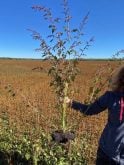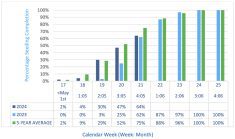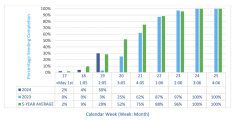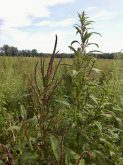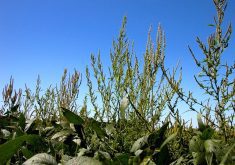A new research project in the U.S. Midwest aims to blast weeds away — literally.
The technique is known as abrasive weeding and it basically amounts to sandblasting weeds.
It all started when Minnesota experienced a bumper crop of backyard apricots in 2007. Frank Forcella, a USDA weed scientist and agronomist, was left with a pile of pits after harvesting his crop. This caused him to ponder if there might be a use for this sort of ‘agricultural waste.’
He began by searching the web and discovering that fruit processors frequently ground up the pits to use them as sandblasting grit. This is where his professional training kicked in, as he found himself wondering whether weeds could be killed by sandblasting.
Read Also

Mazergroup’s Bob Mazer dies
Mazergroup’s Bob Mazer, who helped grow his family’s company into a string of farm equipment dealerships and the main dealer for New Holland machinery in Saskatchewan and Manitoba, died July 6 from cancer.
- Read more on OrganicBiz.ca: New system could weed and feed crops simultaneously
He and a colleague began experimenting with the technique at the USDA’s North Central Soil Conservation Research Laboratory, using a small commercially available sandblaster. They grew corn and weeds adjacent to each other and when the corn was six inches high and the weeds three inches high, they blasted them both for a split second. Turns out only the weeds were hurt.
This warranted further research. First they used a larger mobile unit on an ATV, then finally, after receiving a research grant, moved on to a more advanced machine to weed row crops like corn.
A second model, designed for vegetable crops with wider row spacing, is being tested by another researcher at the University of Nebraska and now researchers in Spain are looking at a more complex system that will automatically detect weeds and turn on and off on its own.
Forcella says organic farmers are an obvious potential market.







